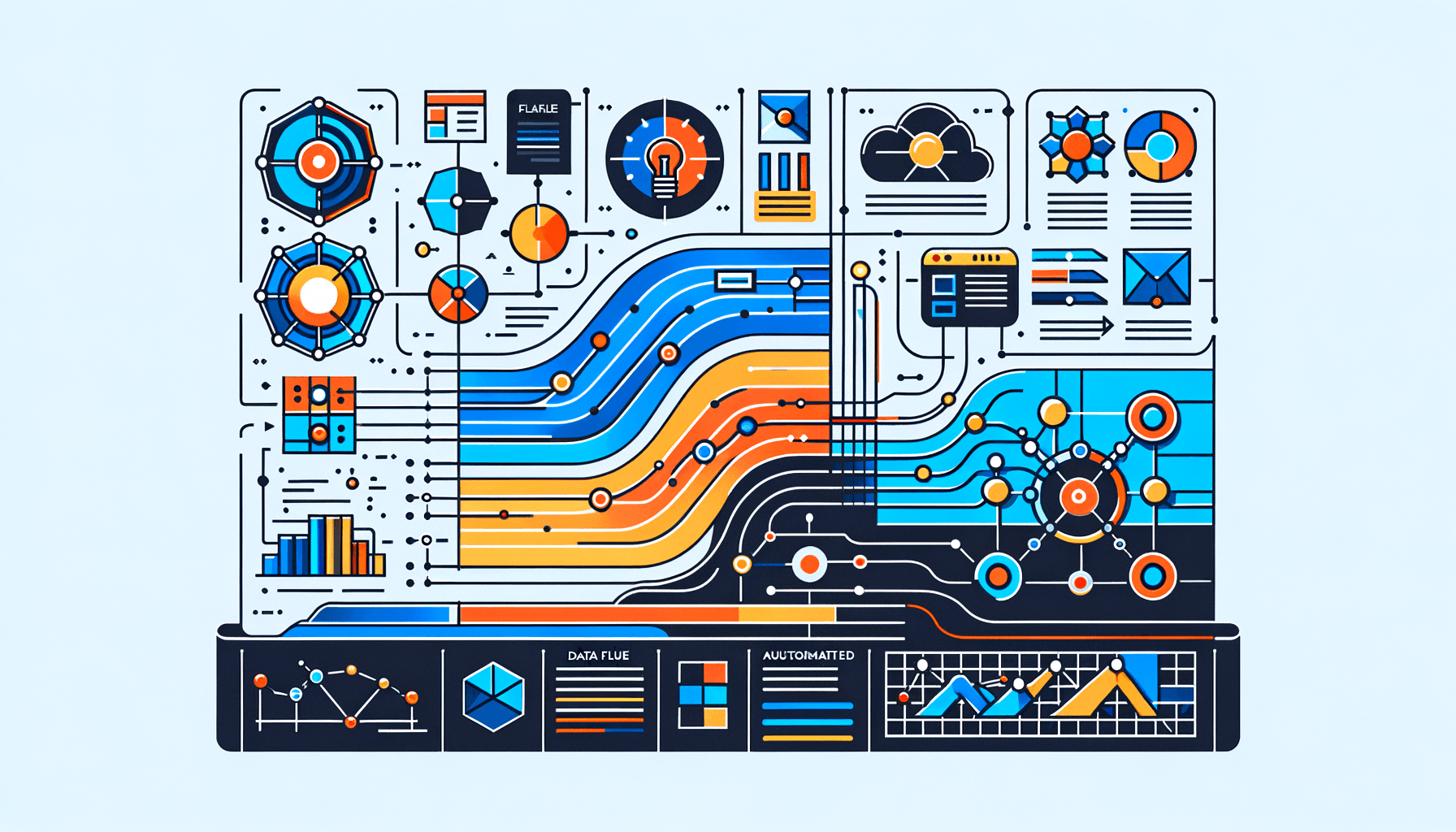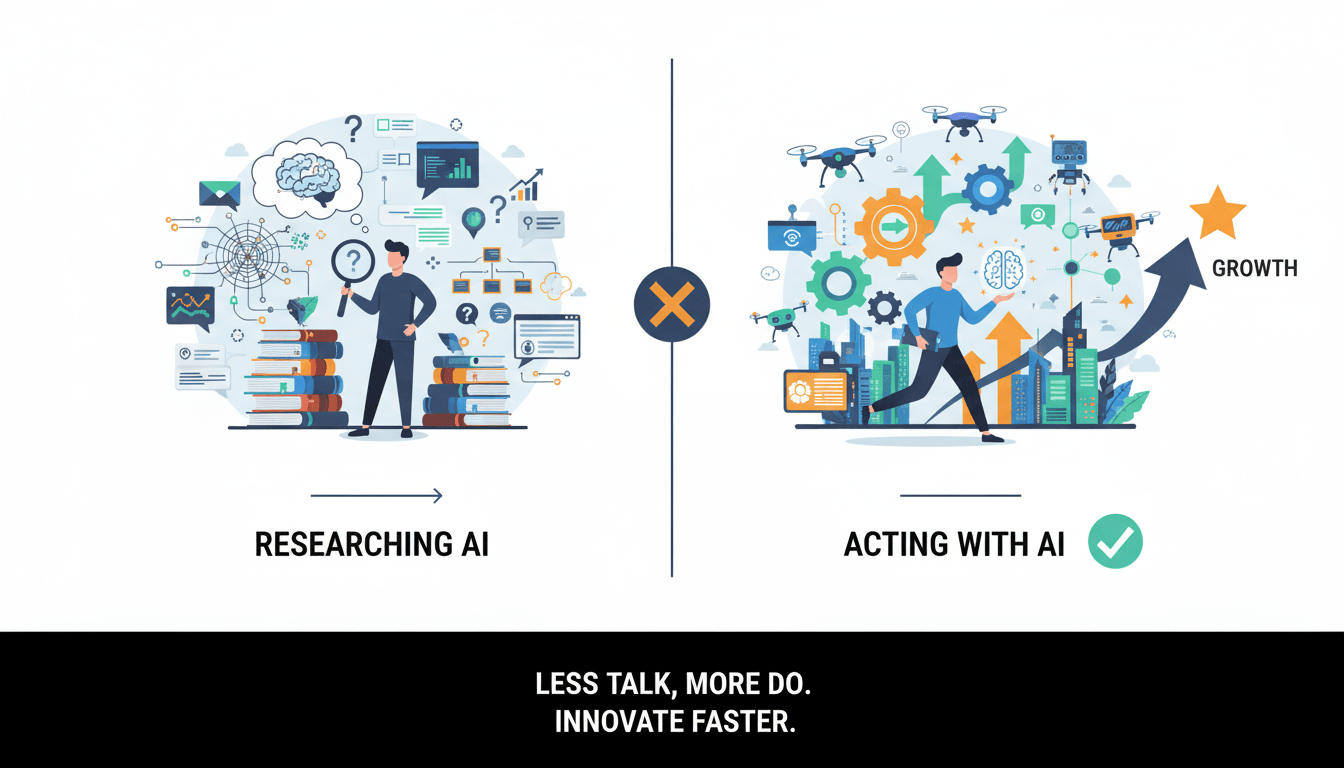· “The Rapid Architect Team” · “AI” · 2 min read
“Enhancing Medium-Sized Business Efficiency with AI Agents in Software Development”
“Medium-sized businesses are increasingly leveraging Artificial Intelligence (AI) and Machine Learning (ML) to streamline operations and boost efficiency. This article explores a practical use case where a medium-sized enterprise integrated AI agents into their software development processes, detailing the challenges faced, the AI solutions implemented, and the resulting business benefits.”

Enhancing Medium-Sized Business Efficiency with AI Agents in Software Development
Medium-sized businesses are increasingly turning to Artificial Intelligence (AI) and Machine Learning (ML) to optimize operations and maintain a competitive edge. This article examines a practical use case where a medium-sized enterprise integrated AI agents into their software development processes, highlighting the challenges encountered, the AI solutions adopted, and the subsequent business benefits.
The Challenge: Streamlining Software Development Processes
A medium-sized technology company, referred to here as TechSolutions Inc., faced challenges in managing their software development lifecycle. The primary issues included:
- Inefficient Code Review Processes: Manual code reviews were time-consuming and prone to human error, leading to delays in deployment.
- Bug Detection and Resolution: Identifying and fixing bugs required significant developer hours, impacting productivity.
- Knowledge Sharing: New developers faced a steep learning curve due to inadequate documentation and knowledge transfer. 
The AI Solution: Implementing AI Agents
To address these challenges, TechSolutions Inc. integrated AI agents into their software development workflow:
- Automated Code Reviews: AI-powered tools were deployed to automatically review code for adherence to best practices, style guidelines, and potential vulnerabilities.
- Predictive Bug Detection: Machine learning models were trained on historical data to predict and identify areas of the codebase susceptible to bugs, allowing proactive resolution.
- Intelligent Documentation Assistants: AI agents were utilized to generate and maintain up-to-date documentation, facilitating better knowledge sharing among team members.
Implementation Process
The implementation involved several key steps:
- Tool Selection: Evaluated and selected AI tools compatible with existing development environments.
- Customization: Tailored AI models to align with the company’s coding standards and project requirements.
- Integration: Seamlessly integrated AI agents into the development pipeline, ensuring minimal disruption.
- Training: Conducted training sessions for developers to effectively interact with and leverage AI tools.
Business Benefits
The integration of AI agents yielded significant advantages: 
- Enhanced Efficiency: Automated code reviews reduced the time spent on manual inspections by 40%, accelerating the development cycle.
- Improved Code Quality: Predictive bug detection led to a 30% decrease in post-deployment issues, enhancing product reliability.
- Knowledge Accessibility: Intelligent documentation assistants improved onboarding times for new developers by 25%, fostering a more agile team environment.
Conclusion
By integrating AI agents into their software development processes, TechSolutions Inc. effectively addressed critical operational challenges, resulting in improved efficiency, code quality, and knowledge management. This case exemplifies how medium-sized businesses can harness AI and ML technologies to drive substantial business value and maintain a competitive edge in the technology sector.
⸻
Written by The Rapid Architect Team https://www.rapidarchitect.com




